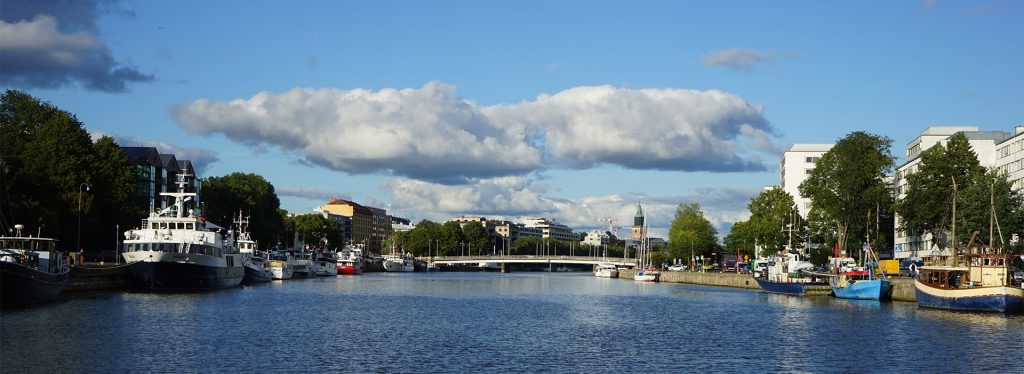How to kickstart the circular transition: Learnings from Circular Turku

The city of Turku and ICLEI – Local Governments for Sustainability jointly released the report Circular Turku: A blueprint for local governments to kick start the circular economy transition. This publication is a product of the “Circular Turku: Regional collaboration for resource wisdom” (2019-2021) project, supported by Sitra. As part of this project, the city of Turku and ICLEI are designing a roadmap to operationalize circularity in the Turku region in close cooperation with regional stakeholders
Building on Turku’s carbon neutrality goals, the Circular Turku report showcases how the circular economy can support ambitious climate action through concrete pathways other local governments can replicate.
By preserving materials that are already available, using waste as a resource, or developing alternative business models that shift away from ownership, the circular economy aims to decrease the demand for new resources and design waste out of production systems.
As the Mayor of Turku Minna Arve puts it “A successful climate policy must include an element of circularity and address both direct and indirect emissions such as those embedded in the material and product life cycles.”
The Circular Turku publication also offers a deep-dive into pioneering circular economy practices from the Turku region, including, among others, an industrial symbiosis initiative to redesign the chemistry sector, a circular water management system concept, and a procurement project to address the lifecycle impacts of food services. Including good practice case studies, the report provides valuable and practice-oriented insights into the governance model and participation mechanisms needed to make the circular transition happen.
“Experiences from Turku demonstrate the key role of cross-sectoral and multi-level collaboration in turning the circular economy into a reality and offer replicable tools to implement similar practices across the ICLEI network,” says ICLEI’s Secretary General, Gino Van Begin.
Finally, the report provides an overview of how circular economy principles can be applied to five key sectors in Turku: Food value chain and nutrient cycling, energy systems, buildings and construction, transport and logistics, and water cycles.
For each of these sectors, challenges and opportunities for action are identified as well as the main stakeholders that will need to be engaged in the region.
The collaborative and innovative community of practice built in Turku is the region’s strongest asset to implement rapid and tangible change. Through the Circular Turku project, the consortium hopes to trigger similar bottom-up approaches to circularity in other local governments around the world.
Turku is also a member of ICLEI’s “Green Circular Cities Coalition”– an international city-focused platform connecting cities, experts, businesses, and relevant stakeholders to shift their mindset from “waste management” towards “integrating city-region resource management and sustainable transition”, and increase circularity via experience exchange and mutual learning. Managed by ICLEI East Asia, the Coalition has brought together 6 local governments from East Asia and Europe.

